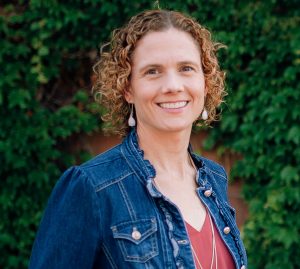 My guest today is managing and acquiring editor Jennifer Slattery. Jennifer gives us insights into the query letters writers must construct to sell their works. At the end of her post, check out her new book Healing Love.
My guest today is managing and acquiring editor Jennifer Slattery. Jennifer gives us insights into the query letters writers must construct to sell their works. At the end of her post, check out her new book Healing Love.
Jennifer: Most of us spend months if not years writing then perfecting a novel then pop off a query, our stories first introduction to professionals, in ten or so minutes. For some reason many of us have come to believe this is a skill we inherently lack and will never quite master, but I disagree. We’re communicators—that’s what we do. And like with any other element of the craft, we can learn to write strong, effective queries that get read—and perhaps even warrant an invitation to submit a manuscript.
Make it personal.
In other words, let the agent or editor know why you chose to query them and they’d be interested in your project.
No one likes to be a part of mass emails or to feel like they’re simply one of several dozen professionals you’ve contacted. This has nothing to do with pride. Rather, it’s an issue of effective time management. More often than not, mass email queries are sent by writers who didn’t take time to research recipients. Therefore, they usually miss the mark. These authors pitch memoirs to editors of romance. They send high fantasy projects to those looking for marriage and family pieces.
Often, such queries provide a strong and lasting impression—a negative one. The better option: take time to find out who wants what you’re writing. If you’re not sure, ask. I would much rather spend my time responding to someone looking for writer’s guidelines than trudging through an inbox full of irrelevant material.
Keep it concise.
Let the agent or editor know, right up from, your genre, word count, if it’s complete, and if you have or are submitting it elsewhere. You can do all that in one sentence, two tops. Here’s an example from a query I sent out years ago for what became my fourth release:
I’m writing to introduce you to my 91,600 word, multiple submission, women’s inspirational fiction, Breaking Free.
Up your queries “bam-grab-me” component.
Yes, a query is an email, in essence, a letter. And yes, it’s important to tell the editor or agent all the pertinent details regarding our projects, but we don’t want to bore them in the process. As with almost anything we write, our story premise must grab our reader and shake the cobwebs from their brain. (This is exponentially true for agents and editors who may have already spent hours-upon-hours sifting through gunk before getting to your gem.)
This is where you’ll want to practice writing 75-to-150 word back cover blurbs. Strong blurbs (or pitch paragraphs) set up the tension for your novel, tell us what’s at stake, and reveal genre, tone and the author’s voice.
In other words, it’s not something one can pop off in an afternoon. It’s always a good idea to sift one’s blurbs through a handful of critique partners before sending them out to industry professionals.
Sound daunting? I hear you. I haven’t met a writer yet who enjoys writing back cover copy. But if we’re going to spend months perfecting that novel, it only makes sense that we’ll also invest the necessary time to make sure it gets read.
Querying can be intimidating and stressful. Not only must one embrace risk by sending their work out, but they also must present the hook of their story in less than a page, and present themselves well. But like with anything else, this is a skill we can learn, if we’ll but invest the time. Plus, with each query, the writing becomes that much stronger and the process that much easier.
What would you add to my list?
Strong book queries tell what’s at stake and reveal genre, tone & author’s voice. Click to tweet.
 Author, speaker, and ministry leader Jennifer Slattery writes for Crosswalk.com and is the managing and acquiring editor for Guiding Light Women’s Fiction, an imprint with Lighthouse Publishing of the Carolinas. She believes fiction has the power to transform lives and change the culture. Healing Love is her sixth novel, and it was birthed during a trip she and her family took to El Salvador that opened her eyes to the reality of generational poverty and sparked a love for orphans and all who’ve experienced loss.
Author, speaker, and ministry leader Jennifer Slattery writes for Crosswalk.com and is the managing and acquiring editor for Guiding Light Women’s Fiction, an imprint with Lighthouse Publishing of the Carolinas. She believes fiction has the power to transform lives and change the culture. Healing Love is her sixth novel, and it was birthed during a trip she and her family took to El Salvador that opened her eyes to the reality of generational poverty and sparked a love for orphans and all who’ve experienced loss.
Her deepest passion is to help women experience God’s love and discover, embrace, and live out who they are in Christ. As the founder of Wholly Loved Ministries, she travels with her team to various churches to speak to women and help them experience the love and freedom only Christ can offer. When not writing, editing, or speaking, you’ll likely find her chatting with her friends or husband in a quiet, cozy coffeehouse. Visit her online at JenniferSlatteryLivesOutLoud.com and connect with her and her Wholly Loved team at WhollyLoved.com
 A news anchor intern has it all planned out, and love isn’t on the agenda.
A news anchor intern has it all planned out, and love isn’t on the agenda.
Brooke Endress is on the cusp of her lifelong dream when her younger sister persuades her to chaperone a mission trip to El Salvador. Packing enough hand sanitizer and bug spray to single-handedly wipe out malaria, she embarks on what she hopes will be a once-in-a-lifetime experience.
But Brooke is blindsided by the desperation for hope and love she sees in the orphans’ eyes. And no less by the connection she feels with her handsome translator. As newfound passion blooms, Brooke wrestles with its implications for her career dreams.
Ubaldo Chavez, teacher and translator, knows the struggle that comes with generational poverty. But he found the way out – education – and is determined to help his students rise above.
When he agrees to translate for a mission team from the United States he expects to encounter a bunch of “missional tourists” full of empty promises. Yet an American news anchor defies his expectations, and he finds himself falling in love. But what does he have to offer someone with everything?









Great and informative post! Thanks for sharing insight into the query. Jennifer, it’s so great to see you here! Zoe, love your blog. Always helpful information.
Hi Sally, I particularly like her tip: Strong blurbs (or pitch paragraphs) set up the tension for your novel, tell us what’s at stake, and reveal genre, tone and the author’s voice. With a good book and a query with these, what editor or agent wouldn’t be curious?
Hi, Sally! I always love connecting with you online. (Maybe one day, in person!) I’m glad you found today’s post helpful!